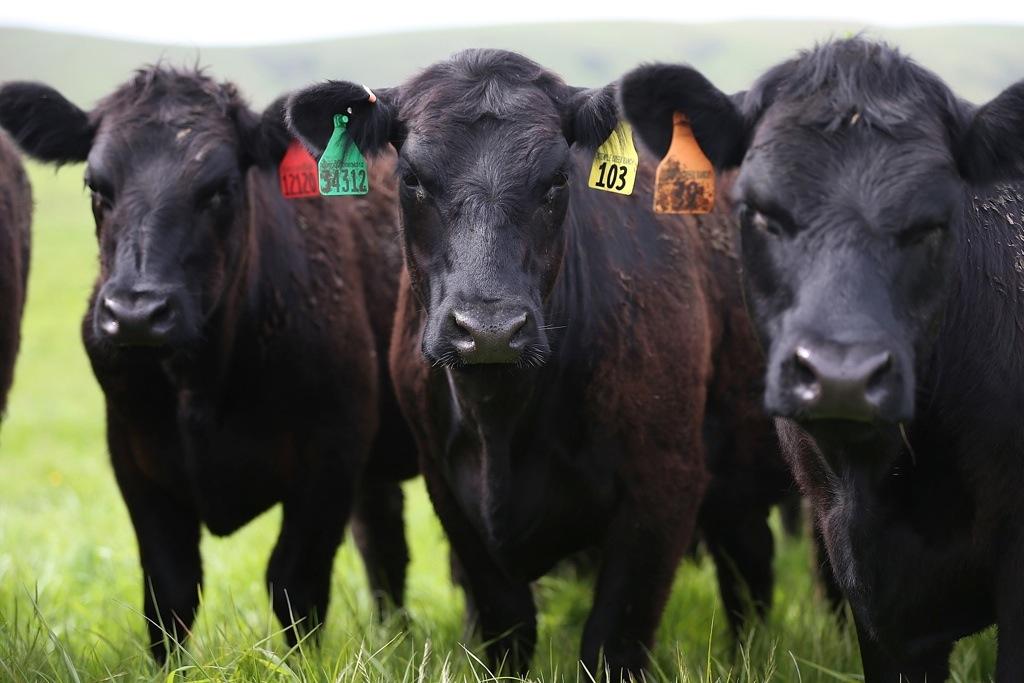Food fight: 4 other times Russia has imposed agriculture bans
Cows graze on grass in Tomales, CA.
As international sanctions bear down on Russia for its role in the crisis in Ukraine, Moscow is fighting back with its own set of restrictions on Western food imports. Russian President Vladimir declared on Aug. 6 that he was banning agricultural products from the US, Canada, Australia and Europe.
This is not the first time Moscow has gotten into a literal food fight. GlobalPost takes a look at four other instances where Russia has retaliated this way.
2013 ban on US beef and pork
![]()
(AFP/Getty)
Russia’s official reasoning for banning beef and pork from America was that US officials couldn’t guarantee the meat was free of traces of a growth stimulant called ractopamine. But, the move came during a tense few months after Congress overwhelmingly passed legislation aimed at punishing those responsible for the death of Sergei Magnitsky, a lawyer who died while in police custody in Russia, making it illegal for them to enter to United States and use American banks.
2009 ban on Belarussian dairy products
![]()
(AFP/Getty)
It was known as the “Milk War.” In June 2009, Russia stopped importing more than 1,200 dairy products from Belarus. Tensions between the two countries had been heating up over a security agreement Belarus, which had been cozying up to Western countries, had declined to sign a security agreement that had already been adopted by Russia, Armenia, Kazakhstan, Kyrgyzstan and Tajikistan. (Belarus also wouldn’t recognize South Ossetia and Abkhazia, two breakaway territories, further upsetting the Russian government.) At the time, Belarus' dairy industry was sending roughly 95 percent of its exports to Russia.
2006 ban on Georgian and Moldovian wine
![]()
(AFP/Getty Images)
In 2006, Moscow banned wines from Georgia and Moldova citing vague safety concerns that were never substantiated. (Russian safety officials cited concerns that the wines contained heavy metals and pesticides.) It was generally understood that Russia was punishing those two countries for aligning themselves with the United States and Europe. Both Georgia and Moldova had run afoul of the Kremlin in their demands that Russia return breakaway territories within their borders. The two countries had also charged that Russia was manipulating the energy market.
2002 ban on US chicken
![]()
(AFP/Getty Images)
At the end of the Cold War, the US sent millions of tons of chicken to Russia as food aid as the country struggled to find its footing. But, in 2002, frustrated by the expansion of NATO and the United States’ hardball negotiating on steel exports, Russia banned US chicken imports under the guise of a concern for salmonella contamination for a month.
We want to hear your feedback so we can keep improving our website, theworld.org. Please fill out this quick survey and let us know your thoughts (your answers will be anonymous). Thanks for your time!
